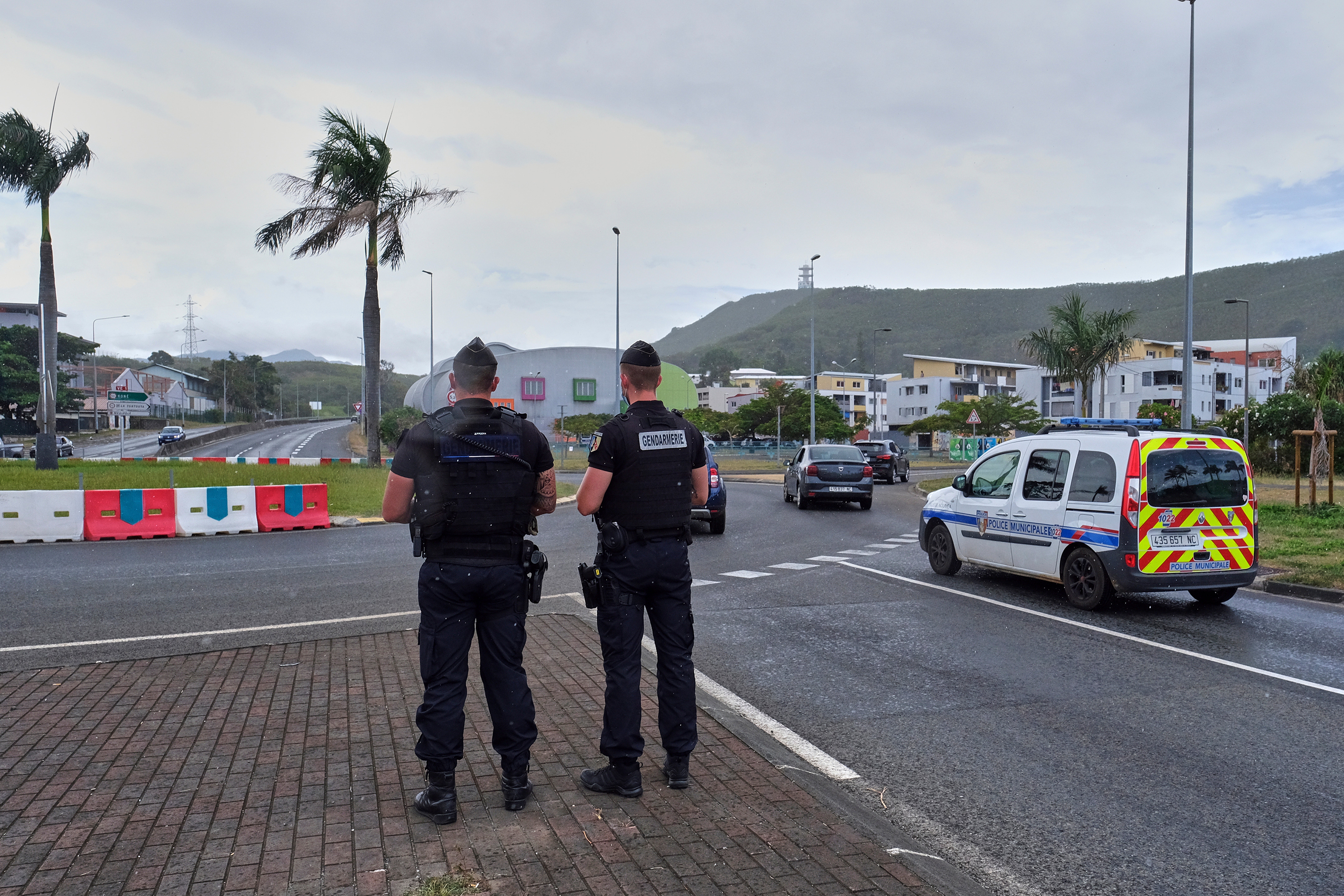French president convenes top ministers to discuss spiraling violence in territory of New Caledonia
At least two people were killed and three were seriously injured overnight in the French Pacific territory of New Caledonia, as President Emmanuel Macron convened a meeting of top ministers to discuss the spiraling violence

At least two people were killed and three were seriously injured overnight in the French Pacific territory of New Caledonia, French officials there said Wednesday, as President Emmanuel Macron convened a meeting of top ministers to discuss the spiraling violence.
It was the third day of violent unrest over a constitutional reform pushed by Paris that has roiled the archipelago, which has long sought independence.
Macron’s office said the president also canceled a trip he had been planning to northwest France on Wednesday while he focused on the crisis.
The special defense and security council meeting called by Macron typically brings together a limited group of officials, including Prime Minister Gabriel Attal and the ministers for defense, interior, economy and foreign affairs.
On Tuesday, the French Interior Ministry sent police reinforcements to New Caledonia, which long served as a prison colony and now hosts a French military base. Four mobile gendarmerie squadrons are being deployed as reinforcements, including 15 gendarmes from an elite intervention unit.
French authorities in the territory said more than 130 people have been arrested since Monday in the violence that has raged across the archipelago, where there have been decades of tensions between indigenous Kanaks seeking independence and descendants of colonizers who want to remain part of France.
Two people wre killed and three gravely injured in the unrest overnight, the territory’s top French official, High Commissioner Louis Le Franc, said in an interview with France Info broadcaster. Earlier Wednesday, he warned that if calm is not restored, there will be “many deaths” in the area of the capital, Nouméa, where protests over the voting rights turned violent on Tuesday.
Clashes between police and protesters have continued in and around Nouméa despite a curfew and ban on gatherings. Schools have been closed “until further notice” and the main airport, La Tontoura, “remains closed to commercial flights.”
“The situation is not serious, it is very serious," Le Franc said. “We have entered a dangerous spiral, a deadly spiral.”
The unrest started on Monday with a protest over France’s efforts to expand voter lists that would benefit pro-France politicians on New Caledonia and further marginalize the Kanak people, who once suffered from strict segregation policies and widespread discrimination.
Early Wednesday, France’s National Assembly adopted a constitutional revision reforming the electoral body in the territory, with 351 lawmakers voting for and 153 against the bill.
Pro-independence representatives appealed to supporters for calm and condemned the vote in the National Assembly, France’s most influential house of parliament.
Macron also appealed for calm after the vote and condemned “unworthy violence” in a letter to Caledonian representatives and political parties.
The bill would allow residents who have lived in New Caledonia for 10 years to cast ballots in provincial elections. People of European descent in New Caledonia distinguish between descendants of colonizers and descendants of the many prisoners sent to the territory by force. The vast archipelago of about 270,000 people east of Australia is 10 time zones ahead of Paris.
New Caledonia became French in 1853 under Emperor Napoleon III, Napoleon’s nephew and heir. It became an overseas territory after World War II, with French citizenship granted to all Kanaks in 1957.
A peace deal between rival factions was reached in 1988. A decade later, France promised to grant New Caledonia political power and broad autonomy and hold up to three successive referendums.
The three referendums were organized between 2018 to 2021 and a majority of voters chose to remain part of France instead of backing independence. The pro-independence Kanak people rejected the results of the last referendum in 2021, which they boycotted because it was held at the height of the COVID-19 pandemic.
___
Surk reported from Nice, France.
Bookmark popover
Removed from bookmarks